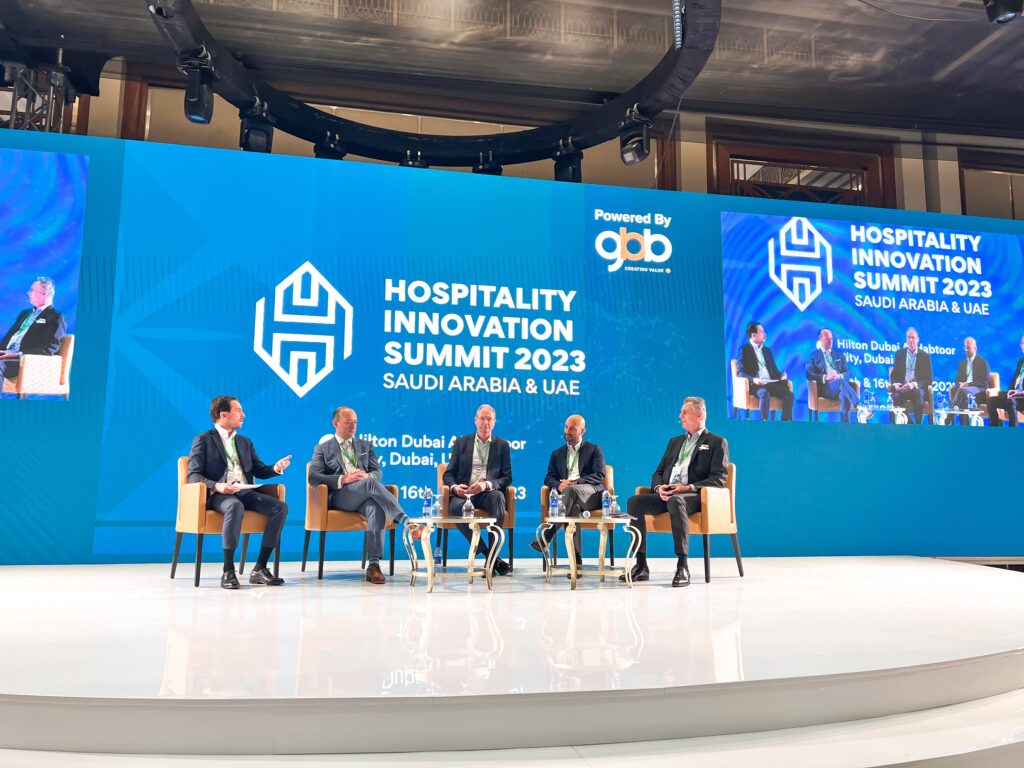
Like all businesses, Artificial Intelligence (AI) is becoming an integral part of the hospitality industry. Speaking on the panel “Hotel Innovation: How to Ensure Relevance Today and Tomorrow,” Laurent A. Voivenel, senior vice president – Operations & Development, EMEA & India; Senior Vice President – Group Human Resources & Talent Development, Swiss-Belhotel International highlighted the potential benefits and risks of AI.
Laurent stated, “While AI has emerged as a powerful tool for productivity enhancement through automation and virtual assistance, consumer behaviour analysis, and personalization of services, it is important to understand its risks too. Like any technology, it is vulnerable to many dangers, and users must take into account the downside related to data privacy and security breaches, as well as the centralization of power in a few companies. While it presents an opportunity, it also comes with a responsibility.”
The panel was moderated by Christopher Lund, Executive Director, Head of Hotels, MENA Region, COLLIERS; and other speakers on the panel included Imran Changezi, Development Senior Director, Diriyah Gate Development Authority; Ian Wilson, Regional Director for Hospitality, THE LINE, NEOM; and Chadi Hauch, Regional VP Lodging Development – ME, Marriott International.
Talking about how hotels can attract top talent, Laurent stressed, “It is undoubtedly becoming extremely challenging to attract and retain the best talent in our industry. To attract top talent, hotels must offer competitive compensation packages with exciting learning and growth opportunities for all-round career development. It is important to provide the right training for employees to learn new skills and stay up to date with the latest trends in the industry to excel in their jobs and achieve the highest guest satisfaction. Last but not least, it is necessary to create a positive work culture with a supportive and inclusive environment where employees feel valued.”
Laurent added, “At Swiss-Belhotel International, we have introduced personnel progression programs for skill-building and enrichment. These were rolled out in each department of our hotels to leverage people’s capabilities, accelerate their progress, and help them realize their full potential. They have been extremely effective in keeping staff motivated to do amazing things while developing successors.
“Our General Manager’s Diploma programs were updated and further developed with the help of a seasoned 3rd party certified hospitality learning provider from Australia. This program, aimed at improving business performance with a comprehensive suite of tools to lead in a digital world while developing strategic thinking and financial acumen, was introduced as mandatory for the GMs in the region. The various transformative courses included in the program have been carefully selected, covering a broad range of business disciplines, including strategic management, people management, financial management, digital marketing, and revenue management.”
Commenting on whether hotels are training staff properly to use technology in hotels, Laurent said, “Technology plays an increasingly important role in improving operational efficiency, enhancing the guest experience, and increasing revenue. Therefore, it is critical for hotels to train their staff to use technology, but it also depends on the budget provided by owners.
“The training process should begin by assessing the current level of technology proficiency among the staff. This will help the hotel identify areas where training is most needed. Hotels should also ensure that the training provided is ongoing and includes updates on new technology and changes in existing technology. Regular training and refresher courses can help keep staff up to date with the latest advancements and ensure that they can make the most of the technology available to them. Hotels should invest in the right infrastructure to support technology and AI, such as high-speed internet, cloud-based systems, and robust data management systems. This will enable them to leverage technology effectively and efficiently.”


Comments are closed.